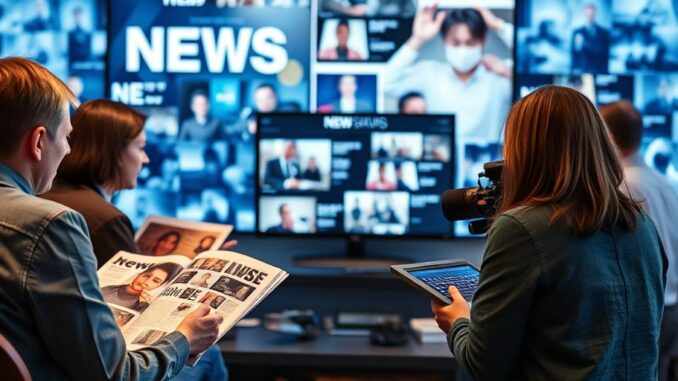
Summary
AI is revolutionizing aging research by identifying biomarkers, developing personalized treatments, and accelerating drug discovery. This technology allows scientists to study aging processes, predict health trajectories, and develop targeted interventions for age-related diseases. AI is poised to reshape healthcare for older adults and unlock the secrets of healthy aging.
Healthcare data growth can be overwhelming scale effortlessly with TrueNAS by Esdebe.
** Main Story**
AI is making waves in how we understand aging, it’s opening doors we didn’t even know existed. Think about it: we’re talking about a revolution in how we approach getting older, going way beyond just adding years to life, instead focusing on making those years good years.
Cracking the Code: How AI Deciphers Aging
One of the coolest things AI brings to the table is its ability to crunch massive amounts of data. I mean, we’re talking genomic, proteomic, metabolomic – all that ‘omic’ stuff that makes your head spin.
AI algorithms can spot patterns that would be totally invisible to us mere humans. It’s like having a super-powered magnifying glass, allowing researchers to pinpoint the specific genes, proteins, and pathways that contribute to aging and, unfortunately, age-related diseases.
And, researchers are already using AI to figure out ‘biological age,’ which, let’s face it, is way more important than just how many candles were on your last birthday cake. These AI-powered ‘aging clocks’ give us a sneak peek into someone’s health trajectory and potential risks down the road. Pretty neat, huh?
New Drugs and Treatments With A Little Help From AI
But that’s not all, AI is also seriously shaking up the drug discovery process. Instead of years of painstaking research, machine learning algorithms can sift through huge libraries of chemical compounds to find the ones that might actually target aging pathways. I mean, come on, who wouldn’t want a drug that makes them feel 25 again?
What’s more, AI is helping us develop personalized treatments, which, in my opinion, is where the future of healthcare is headed. By understanding how different people age and respond to interventions, we can tailor treatments to their specific needs. Your genetic makeup, lifestyle, risk factors – it all matters.
That said, it’s not always perfect and there can be issues when it comes to how well these systems really work. Still, the possibilities are exciting, and the more we learn about AI the more capable it’ll become.
AI: A Caregiver in Your Pocket?
Now, let’s talk about healthcare. AI isn’t just for the lab; it’s making a real difference in the lives of older adults every single day.
Think about AI-powered tools that monitor vital signs, detect falls (a big concern for many seniors), and even provide medication reminders. This means older folks can live more independently and safely in their own homes. And that can be a real game changer for their quality of life.
Plus, things like AI chatbots can offer companionship and cognitive stimulation, while virtual assistants can help with daily tasks and scheduling. It’s like having a digital friend and helper all rolled into one. It’s important though that these systems don’t end up replacing human interaction or care, there’s no technological replacement for holding someone’s hand and offering comfort.
What’s Next in the World of AI and Aging?
So, what does the future hold? Well, as AI keeps getting smarter, its potential to unlock the secrets of aging and promote healthy longevity becomes even more promising.
I envision a future where AI-driven diagnostics, personalized medicine, and assistive technologies are commonplace, leading to even more breakthroughs in our quest for longer, healthier lives. It’s a field that’s rapidly evolving, and one I’m incredibly excited to be a part of. Can you imagine the possibilities? I know I can.
AI isn’t just rewriting the future of aging, it’s reshaping the entire healthcare landscape. And that, my friend, is something worth getting excited about, don’t you think?


How reliable are the AI algorithms used to determine ‘biological age’, and what measures are in place to ensure that these predictions are accurate and don’t lead to unnecessary anxiety or inappropriate medical interventions?
That’s a great point! The reliability of biological age algorithms is definitely crucial. Right now, researchers are using diverse datasets and rigorous validation methods to improve accuracy. Plus, ethical guidelines and expert oversight are essential to prevent misinterpretations and ensure responsible use in healthcare. What safeguards do you think are most important?
Editor: MedTechNews.Uk
Thank you to our Sponsor Esdebe
Given the potential for AI to personalize treatments based on individual factors, how might we ensure equitable access to these advanced therapies, preventing disparities based on socioeconomic status or geographical location?
That’s a critical question! Ensuring equitable access is key. Perhaps a tiered system, subsidized programs, and telehealth solutions could bridge the gap, making personalized AI therapies available regardless of location or income. Open-source AI models could also foster wider adoption and innovation in underserved communities. What are your thoughts?
Editor: MedTechNews.Uk
Thank you to our Sponsor Esdebe